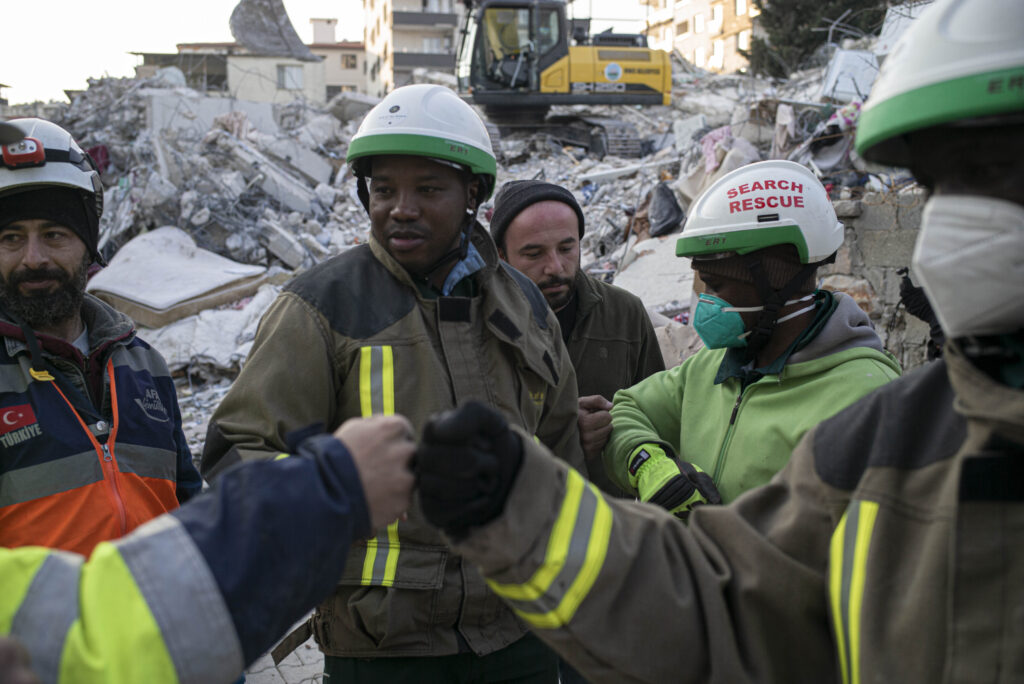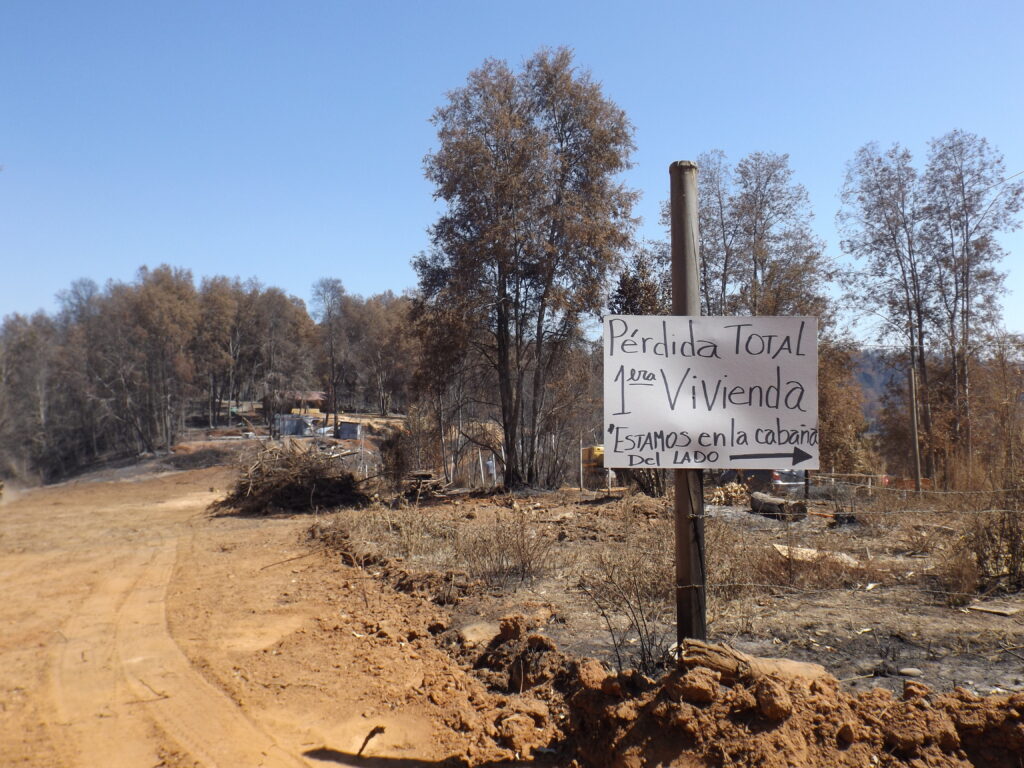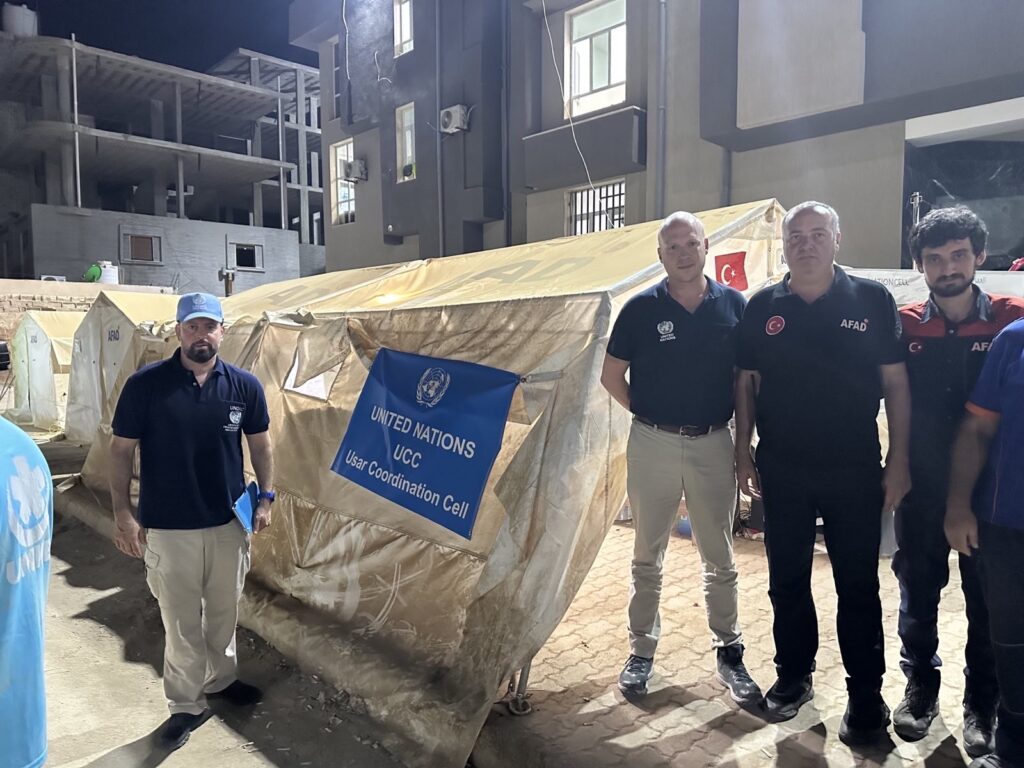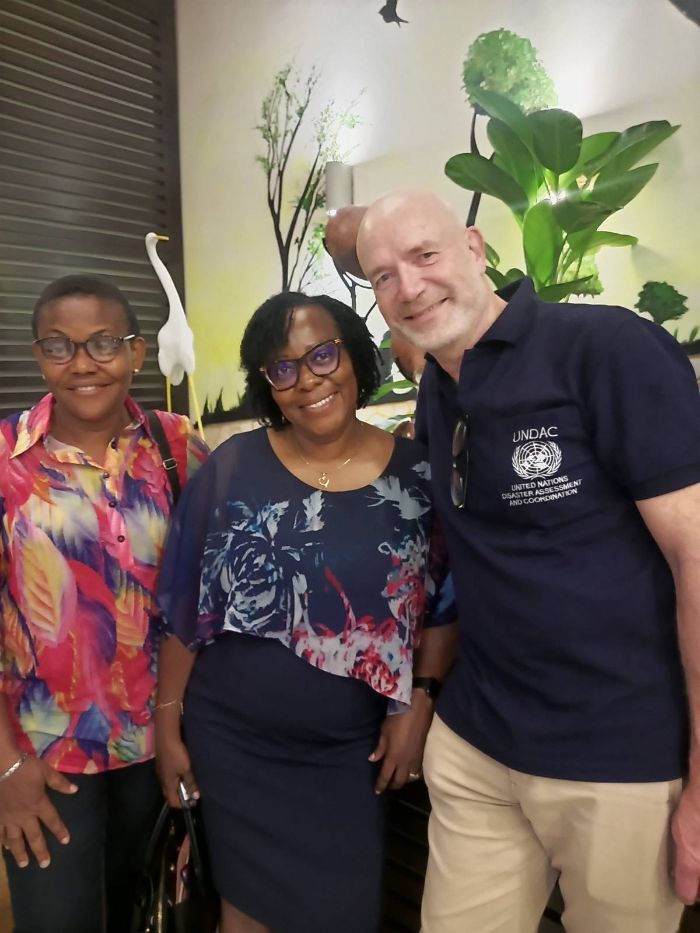UNDAC Dispatch, December 2023: UNDAC Missions 2023
(Since March 2023)
Türkiye-Syria Earthquake (February-March): UNDAC significantly contributed to the earthquake response efforts in Türkiye and Syria following the Turkish government’s request for international assistance on February 6. The initial deployment of 50 members in Türkiye increased to 61 by February 17 and eventually to 88 people, covering operational hubs in Gaziantep, Hatay, Kahramanmaras, Adiyaman, and Malatya. The team underwent a transition from the first to the second wave of deployment and by late March, the mission was winding down, with team leadership demobilizing and most members departing, leaving a sustained presence through OCHA personnel and continued support from the International Humanitarian Partnership. A functional review of the UNDAC mission was conducted after members returned home, that will help improve response strategies.
Click to see an Overview of the International Coordination Structure in the Türkiye-Syria Earthquake.

South African USAR Team search for Survivors of the earthquake with Turkish rescue workers.
Chile Forest Fires (February-March): In response to devastating forest fires in Chile that affected over 430,000 hectares and displaced thousand people, UNDAC, along with OCHA staff from Panama Regional Office, supported the UN Resident Coordinator in response coordination. International and national responders, totaling nearly 11,000, were mobilized. The mission concluded in early March, but recovery efforts continued with various UN agencies and the Chilean government assessing damage and aiding recovery.

Chile forest fires, February – March, Chile, 2023.
Peru Floods (April): Following severe floods in Peru, an UNDAC team supported the national government in humanitarian coordination, analysis, assessment, and information management. This mission, initiated in early April, concluded on May 10, with a comprehensive USD 6.8 million CERF proposal approved to aid over 570,000 affected individuals.
Morocco Earthquake (September): On September 9, OCHA mobilized an UNDAC team to respond to the Morocco earthquake. The Joint Environmental Unit (JEU) sent a senior staff member to support with coordination, reporting, and environmental response. Since the UN Resident Office was able to manage the response in support of the Moroccan government, the UNDAC team was demobilized right after.
Libya Floods (September-October): UNDAC teams were mobilized to Libya, focusing on operations in Tripoli, Benghazi, and Derna. The mission included coordination support to INSARAG USAR teams and environmental experts from the JEU. As the situation evolved, the team’s presence was scaled back, concluding with a final debrief that provided key insights and recommendations.

Meshari Alfaras, UNDAC member – Kuwait, Jake Morland, UNDAC member – OCHA, in Derna, Libya, September 2023.
Ghana Floods (November): Responding to flooding from the spillage of the Akosombo Dam, UNDAC deployed a team specializing in assessment, analysis, and coordination of relief. The UNDAC team arrived in Ghana on 6 November to support in the provision of humanitarian coordination, assessment and analysis towards the floods that have caused devastating social, economic, infrastructural and environmental impacts in the Volta region of Ghana. The team worked closely with OCHA Regional Office in Senegal, the Resident Coordinator Office, UNCT, and other organizations, focusing on providing tents for displaced persons and developing a response mechanism. The mission concluded in late November.

Aisueni Mmandu, UNDAC member from Nigeria (left) and Jakob Agersnap, UNDAC member from Denmark, (right) deployed to Ghana, joined by Ruth Nana Friba (middle) from Ghana NADMO who functioned as liaison between UNDAC and NADMO, drawing on her experience as a UNDAC Member.
Volcanic Activity in Cape Verde (December): In December an UNDAC team supported the Resident Coordinator and the UN Country Team Task Force in Cape Verde as seismicity at Brava increased. The main objectives of the team were to support the UNCT task Force with general coordination and possibly Civil-military coordination, support the Government seismic expert of the Instituto Nacional de Meteorologia Geofisica with situation monitoring and advisories, and assess and suggest enhancement of the country’s seismic/volcanic monitoring system. The focus shifted from response preparedness to contingency planning due to the volcano’s decreased security risk level.

